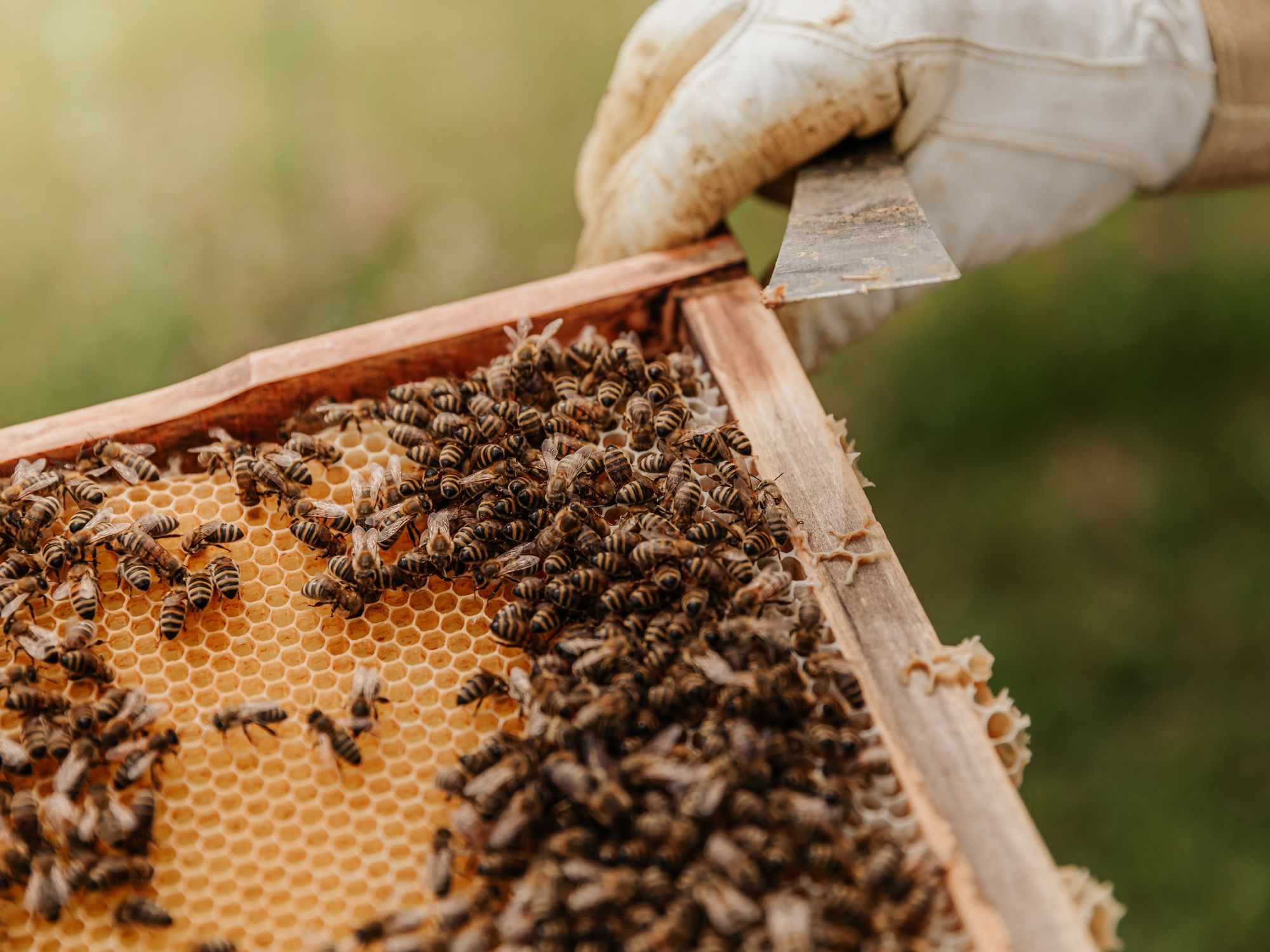protect our pollinators
Texas buzzes as the 4th best state for beekeeping in new report

Bee-friendly, the Texas way.
Heard the latest buzz about Texas? We're one of the best states for saving the bees. Pollinators are the key that allow us to enjoy many of our U.S.-grown crops, and without them, we would lose access to nearly a third of our food supply.
Texas came in fourth in Lawn Love's 2023 edition of "Best States for Beekeeping" with the third-highest honey production value, and the fifth-highest number of honey-producing colonies. The three states that ranked higher include North Dakota at No. 3, New York at No. 2, and California leading the way at No. 1. Rounding out the top five is Ohio.
Surprisingly, the so-called Beehive State of Utah was a let-down in the report with its poor beekeeper salaries, a lack of bee-friendly legislation, and a high amount of colony loss per year. It came in at the bottom of the list as the third worst state for beekeeping, with Arizona (No. 38) and Wyoming (No. 39) ranking even lower.
If you want to take a few steps to extend our classic Texan hospitality to our vital pollinators, Lawn Love suggests four tips: planting native plants, replacing your grass with clover, using organic pest control, and designing bee-friendly landscapes in your yards. Those looking to start beekeeping can look into their local beekeeper's association, which in our case is the Austin Area Beekeeper's Association.
Rachel Mallinger, an assistant professor at the University of Florida, explained in the report that one of the most common misconceptions about bees is that honey bees make up the most of the population. The truth is that honey bees only account for a "very, very small fraction" of the "thousands of species of bees around the world."
"Most bees are actually solitary, meaning each female or mom bee has her own baby bees in a small nest with no queens or workers," Mallinger said. "One consequence of this is that when you see an individual bee in your yard — if it is indeed a solitary species like most species — it means there is no large colony nearby. These bees are also usually very gentle and do not sting unless directly bothered."
The report can be found on lawnlove.com.
